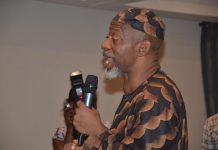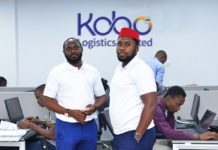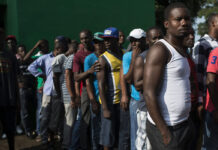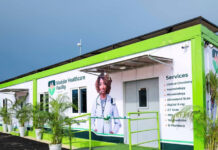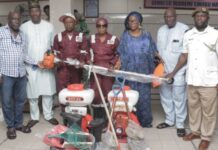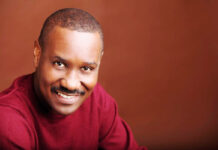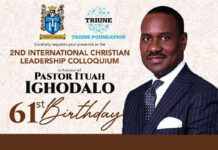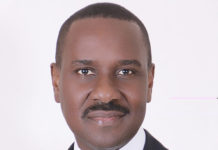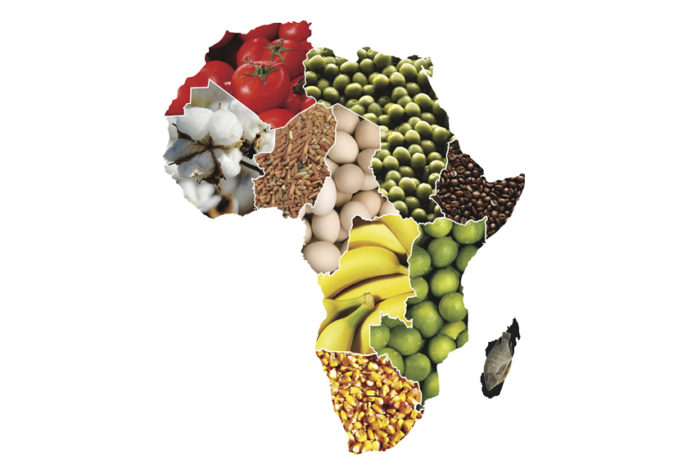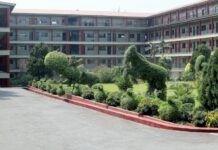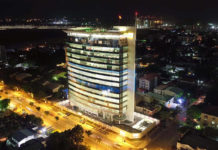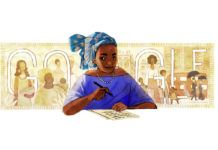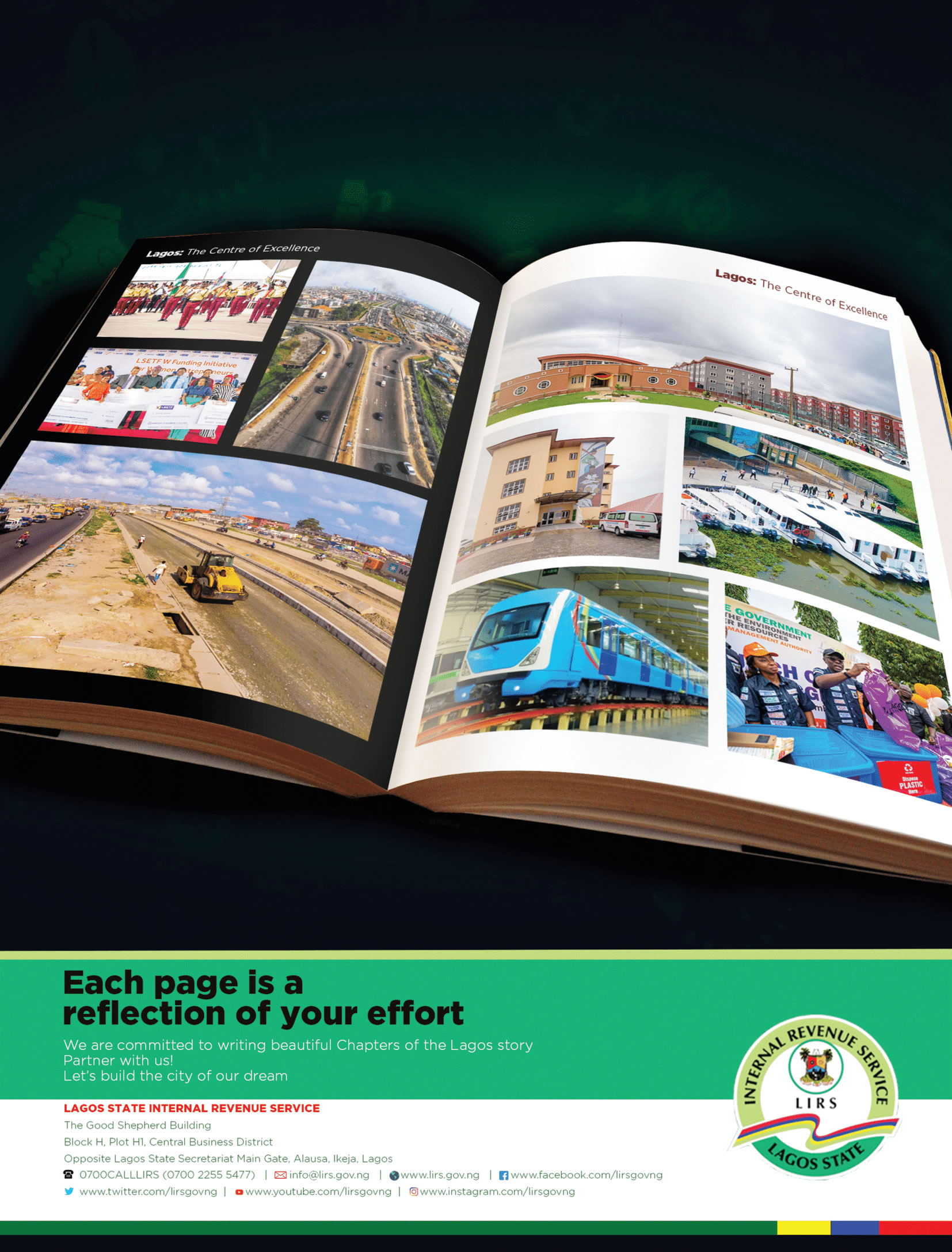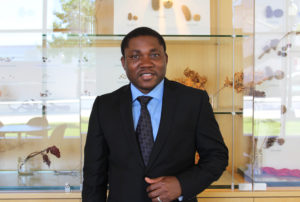 Excerpts from an interview with Cornelius Adewale, 34, a PhD candidate at Washington State University (WSU), and winner of Seattle-based Bullitt Foundation’s 2017 Environmental Prize: “for his leadership role in developing an app and web tool that can measure a farm’s carbon footprint and help farmers reduce the impact of that footprint.” The Bullitt Foundation Environmental Prize is a US$100,000 award for graduate students pursuing leadership positions within the environmental field.
Excerpts from an interview with Cornelius Adewale, 34, a PhD candidate at Washington State University (WSU), and winner of Seattle-based Bullitt Foundation’s 2017 Environmental Prize: “for his leadership role in developing an app and web tool that can measure a farm’s carbon footprint and help farmers reduce the impact of that footprint.” The Bullitt Foundation Environmental Prize is a US$100,000 award for graduate students pursuing leadership positions within the environmental field.
Nowhere on earth is food scarcity as biting as on the continent of Africa. As a matter of fact, food shortage has become emblematic of the lives of the battered masses of the people—1.2 billion of them—who are stuck on it and still call the beleaguered continent home.
The story is the same from the north to the south. Recently in Morocco, on November 19, 2017, of a large number who were trying to get free food for themselves and their families, 15 women died and at least five more taken to hospital with injuries following a stampede during food aid distribution in the Moroccan village of Sidi Boulaalam. Zimbabwe used to be the bread-basket of the region and beyond but is now a basket case and currently caught by its throat and thrashing about in the throes of transition of power long overdue.
It is the same story from west to east of the continent. Growing up in the north of Nigeria, in West Africa, I witnessed upfront and personal the devastating effects of unsustainable agricultural practices that have become the norm in those parts, made worse by desertification—the Sahara Desert encroaching on the lives and livelihoods of the people. In 2009, I was in the Maasai Mara region of Kenya and among the semi-nomadic pastoralist Samburu people of that country, during the height of the recent drought there. The landscape was littered with the aftermaths of the devastation. For example, the giraffe population, among other iconic wildlife, was decimated by as much as 95%.
The Yoruba of southwestern Nigeria, the homeland of Cornelius Adewale, have a saying that sums up the quest for human dignity that endemic hunger on the continent seems to have succeeded in putting on the back burner: Bi ounje ba kuro ninu ise, ise bu se: ‘To tackle poverty, first take care of food security’.
But it is another saying enshrined in the collective wisdom of the sentience-savvy Yoruba that may offer insight into why the continent of Africa has remained Development-deprived: Ebi ki iwo’nu ki oro mi o wo: ‘Hunger pushes to the back burner every other issue until it (that is, hunger) is no longer an issue’.
Mr. Adewale, the Yoruba of southwestern Nigeria have a saying that relates the elimination of poverty to the tackling, first and foremost, of hunger. From your vantage position in Agricultural research and contributions to food security, in what ways does this provide motivation for your commitment to your line of work and research interests?
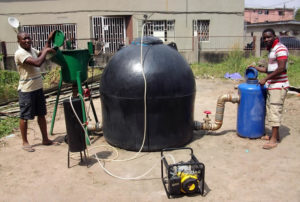 For every nation that has advanced in development, whether it is the United States, United Kingdom, or Germany and the others, the first sector usually developed was the agricultural sector. Maslow’s hierarchy of needs identifies physiological needs, such as food and shelter, as basic since these are related to the survival instinct; followed by needs related to safety. Until the first basic need of life, food, is settled, nothing else matters.
For every nation that has advanced in development, whether it is the United States, United Kingdom, or Germany and the others, the first sector usually developed was the agricultural sector. Maslow’s hierarchy of needs identifies physiological needs, such as food and shelter, as basic since these are related to the survival instinct; followed by needs related to safety. Until the first basic need of life, food, is settled, nothing else matters.
Everything to do with development and innovation that we see all around us first began in the mind. But the mind cannot function maximally when the basic need of the body is not met. Food is the fuel of the body. So, there may not be any meaningful creative expression and development at the personal, communal, national or even continental level, until there is food security.
One of the fundamental reasons why Africa is still lagging in development and why we have not realized the enormous potential that the continent holds is because we have yet to address the issue of food security. Consequently, so many minds are being wasted, and that with profound consequences. The only thing those minds could think about is how to find food. The primary thing that is pre-occupying the minds of the people is how to find food rather than spend mental and physical energy on meeting developmental needs.
And guess what? The lack of food security in the continent is overtly linked to other issues of radicalization, corruption, insecurity and social crises currently engulfing the continent. When people are hungry, they will do anything to solve that problem. People are prone to corrupt practices, or to excuse same, when their basic needs have not been met. So, to solve a lot of societal problems that we have in Nigeria, and of course in Africa, we must start by addressing the issue of food security. And, I must say that we have everything it takes to do this.
What was growing up in Nigeria like?
I grew up in Ilesa, a town in southwestern Nigeria. I started going to the farm with my grandparents when I was five or six years old. We had a cocoa plantation in Ipetu-Ijesa. I spent my summers there. We also had other farms where we used to produce fruits, cassava, okra, maize and other basic crops. I was surrounded by other people that did the same things.
But I became more passionate about addressing the issue of food production in Nigeria when I was in the university. I was privileged to be elected as the national president of the Nigerian Agricultural Students (NAAS). This gave me the opportunity to travel across the country, and I saw the enormous natural but untapped potentials that the country has–in terms of land and water resources. At the same time, I saw a lot of challenges that farmers were facing.
That struck a chord deep in my heart. I began to think of how to turn these merely apparent challenges to solution for plenty and prosperity. I must mention here that one of the fundamental ways of doing this is by bringing information to the people. Let me make this clearer. After graduating from the Obafemi Awolowo University (OAU), Ile-Ife, I started a small–scale organic vegetable farm.
My motivation was to be able to prove what I had become convinced to be possible. I didn’t just want to talk theory; I wanted to practice what I was talking about. I started my farm on a plot of land close to where I lived in Ikorodu, a suburb of Lagos. Till today, I still don’t know the owner of the land. The farm grew from a plot to 15 plots. And I started with just 2000 Naira; that’s the equivalent of US$20! I had no money. I had nothing. I borrowed that start-up capital from my brother; I’m 15 years older than him.
I could do this because I leveraged on available resources and I was able to use the education I had acquired to address the missing pieces in our agricultural system. I believe there is need for an agricultural revolution in Nigeria and in Africa as a whole; but this can only be made possible if we close the gap between the farmers and the academic and research institutions.
What impact and difference do you see your work having on the lives of people in Nigeria and across Africa?
I want to create a technology that will link farmers to their customers in such a way that before your watermelon is ready for harvest you already know where the watermelon is going. Once we can bring stability, farmers can grow. Bringing stability into the food chain reduces the level of uncertainty.
Could your app presently under development be the silver bullet that will slay the specter of food scarcity in Africa and elsewhere?
The main problem with agricultural production system in Nigeria has to do with our production value chain, as well as the supply value chain. There is a disconnect between the two.
On the production value chain, we have thousands of farmers still using obsolete and inefficient tools and farming knowledge. We have not educated and enlightened our farmers on current techniques on how to add value to the land and to the crop. The farmers must be kept abreast of recent innovations for higher and efficient productivity and soil enrichment.
It is common in Nigeria, for example, for farmers and prospective farmers to complain about access to finance. As much as I recognize access to finance as a challenge, I don’t think it is the over-arching problem. The problem is perspective; we have not been able to identify the resources that are readily available and sometimes for free, but rather are paralyzed by those resources we think we lack.
Let me make my point vivid. When I ran the organic vegetable farm, I recognized that there was a poultry farm around me which produced a lot of smelly waste and the poultry operators had a tough time dealing with this. I approached them and told them I could take their poultry waste. I took the poultry waste and used it as my organic fertilizer so I didn’t have to spend money buying fertilizer.
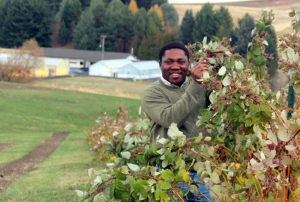 This brings me back to the issue of adding values to the different pieces in the eco-system. Because of the knowledge I was exposed to, I knew I had to add value to my soil to get the best out of it. I knew I had to supply irrigation and soil nutrients at the right time, and the right quantity optimally. I searched my natural environment to get what I needed.
This brings me back to the issue of adding values to the different pieces in the eco-system. Because of the knowledge I was exposed to, I knew I had to add value to my soil to get the best out of it. I knew I had to supply irrigation and soil nutrients at the right time, and the right quantity optimally. I searched my natural environment to get what I needed.
These and more are some of the different kinds of knowledge that we need to bring to farmers across the country. They need to learn to manage their soil so they can get more out of the land. Our farmers need to learn to manage water and protect their crop better.
But there is another aspect which has to do with supply. A lot of farmers produce so much without knowing where to sell. Sometimes, much of the produce is wasted right there on the farm. Still using my organic vegetable farm as a case study, I studied and identified constraints in the supply chain. I observed that taking the produce to the market exposed me to unfavorable factors, so I needed to design my supply chain.
I went to different restaurants in my area and I made a deal with them that I would be supplying them vegetables. So instead of taking my vegetables to the general market, and exposing myself to the vagaries of supply and demand, I had a reliable market for my produce. This gave me stability and control on different factors of production, which helped me to plan and grow. In Nigeria, and for so many African countries, we have not been able to reconcile the forces of production with the forces of supply. We don’t even have the statistics to help us reconcile the two.
Tell me about Organic Farming Footprint, or OFoot®, web tool. How is it a precursor to the mobile phone app you’re currently working on?
As long as I love talking about OFoot®, I will not dwell so much on it for obvious reasons. Firstly, I am not the only one responsible for developing OFoot®; it’s a team network here in Washington State University. OFoot® is basically a web tool that farmers in the Pacific Northwest can use to assess the carbon footprint of their farm.
My grandfather was very sensitive to changes in his environment. Even without a clock, he could tell the time almost accurately. Over 25 years ago, I was on the farm with my grandfather and he was complaining about changes in climate: that rain was not coming at the specific and expected time. That was 25 years ago. Today, when you go throughout Nigeria, from Bayelsa all the way up to Maiduguri, you can see firsthand the impact of climate change. I also saw it working on my farm 7 years ago. So, climate change is already impacting farmers in the country.
What we have done at the Washington State University is to develop a tool that farmers can use to assess their own farm’s contribution to climate change; but more importantly what they can do differently. What practices can they change that can boost their productivity and at the same time reduce the level of their environmental footprint?
With OFoot®, a farmer can assess the carbon footprint of their farm in terms of how much greenhouse gas is coming from their farm. That way, they can monitor their soil for greater productivity and at the same time protect the environment. That is basically what OFoot® does. It has economic and environmental benefits.
Even though Africa and most tropical area are going to be impacted most by the effects of climate change, yet farmers are not ready for change. My idea is to develop technology tools in such a way that speaks the language of farmers on how to improve productivity and at the same time prepare farmers for the vagaries of climate change. We must improve productivity and build resilience into our farm production system as a whole. So, that is where organic farms come in. I believe that building soil organic matter will boost the productivity of the farm and at the same time protect the ecosystem.
I’m a numbers man, so let’s consider some figures here. Let’s use corn (otherwise known as maize) as our crop of reference. A harvest of 2000 kilogram per hectare (kg/ha) in Nigeria would be considered a good yield, but average yield in the U.S. is around 8,000 kg/ha. Actually, the average yield in Nigeria is around 1,500 kg/ha. That’s a ratio of 1:5. For perspective, the figure for Nigeria was the average yield for a farmer in the Roman Empire during the time of Julius Caesar, some 2100 years ago.
Really? Those figures are so stark in the picture of disparity they paint. Talk about ‘First World’ versus ‘Third World’.
Actually, the 8000 kg/ha figure that I gave for the U.S. is really very conservative. In most of the Corn Belt of the U.S., the average yield is between 10,000 and 12,000 kg/ha. That pushes the ratio to 1:8! Keep in mind Nigeria is the largest corn producer in Africa, and the 10th largest in the world.
But I’m optimistic that we’ll get there. Now part of my concern is how to use anaerobic digestion to supply fertilizers to farms. In America’s Corn Belt (the midwestern states of Indiana, Illinois, Iowa, Missouri, Nebraska, and Kansas), the soils are deep, fertile, and rich in organic material and nitrogen, and the land is relatively level. Not many farmers in Nigeria can adequately afford nitrogen-based fertilizers, so we should be concerned with sourcing for soil nutrients from the natural surroundings and natural waste. I am concerned about manure production and other locally available and environmentally-friendly resources to boost soil productivity.
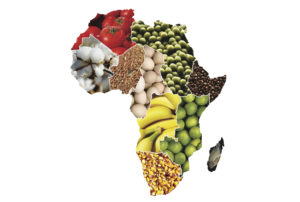 Farmers need this knowledge. How can a maize grower in Oyo or in Ilora be in sync with poultry owners in their areas in such a way that poultry waste becomes an input for their farm? How can farmers grow cover crops as a source of fertility and that protects their soil?
Farmers need this knowledge. How can a maize grower in Oyo or in Ilora be in sync with poultry owners in their areas in such a way that poultry waste becomes an input for their farm? How can farmers grow cover crops as a source of fertility and that protects their soil?
This knowledge and information must be brought to farmers in a way and language that they can relate with and understand; in a way that it will resonate with them.
As a writer of children’s literature and Young Adult (YA) novels, I interact regularly with 8 to 15-year-olds. What would you tell your 10-year-old self about life and love (purposes, passions, and pursuits), and living? What about your 20-year-old self?
Be intentional about life. My 20-year-old self would spend more time with Grandma. So, to my 20-year-old self I would say to live life. Don’t just go through life; enjoy the moment. My life though is still an unfolding story. I was involved in a lot of activities in my 20s.
As an undergraduate, I was involved in politics, business, fellowships, among others. Granted, these contributed in great measure to what I am today. I had intentional relationships with people. I had great friends. There was a tendency for me then to be super-busy so I would tell my 20year old self to take it easy.
Recently, another Nigerian, Akinwunmi Adesina, won the US$250,000 World Food Prize “for driving change in African agriculture for over 25 years and improving food security for millions across the continent.” Could a true revolution be underway for African agriculture? I think your app is a missing link of sorts, what the process lacks. I would love to get you and Dr. Adesina working together. What do you think?
That would be Paradise! Dr. Adesina is one of my mentors in the area; fortunately, we were taught by the same professors and finished from the same Department of Agricultural Economics at Obafemi Awolowo University. He is one of the giants on whose shoulders we grew and still stand on. I’m currently working with another colleague on a project proposal that might see us working with Dr. Adesina.
One of my goals is to bring him and other brilliant minds on the continent such as Jehiel Oliver, founder of Hello Tractor, Alloysius Attah CEO and co-founder of Farmerline and Ronke Aderinoye, founder and CEO Agrihub, into a network that could provide a one shop stop and holistic solution for agricultural revolution in Africa.
The idea is to bring about a true agricultural revolution on the continent. We need to build the coalition in such a way that will unleash the power of synergistic effort in bringing about the kind of revolution that is needed in the agricultural space in Africa. It is not something one person or some individuals scattered around can do, but when we have a group of people with the same vision coming together, that change is nearer than we think. Dr. Adesina is one of my mentors and one of the people that I believe can get us to the Promised Land as far as agricultural revolution in Africa is concerned.
You are on the board of directors of Tilth Alliance in the state of Washington. What is it about the work of that nonprofit alliance of organic farmers that attracted you to devote your time and other resources to its objectives? Could you use it as a model for community-based initiatives for ensuring food security in Africa?
For more than a decade now, the primary thing that drives me is how to ensure food production in a sustainable way. It is the reason why I started my farm. It is the reason why I came here to learn more about sustainable agriculture.
So, when I saw an organization committed to sustainable agriculture through communal engagement, I was excited. I have been able to contribute my quota and I have also learned a lot that I take back home to Nigeria. A community-based initiative is one of the ways that we can address agricultural issues. My app is based on this principle of community-based initiative to drive change.
It is not just about having mega farms but recognizing the challenges we have in our country, and across Africa, and turning them into opportunities. We can use the community orientation and thinking of our nation and leverage that to bring about positive change.
The Sahara, the world’s largest hot desert, covers 9.4 million square kilometers (about 3.5 million square miles); that’s comparable to the area of the U.S.A or China! I believe that one of the ways we could start reclaiming it is through agriculture. There are efforts, for example in Niger and Chad, to reclaim the desert through intentional planting.
There’s a lot we can learn from the state of Washington in this regard. Washington State is divided into 3 geographical areas – eastern, western and central. The central Washington was like a desert until there was an irrigation effort several decades ago, and right now it is one of the most productive in the state; and the number one growers of apples in the world, and number two in terms of potato production. It used to be a desert. The same can happen in Africa, but we must first maximize the productive landmass.
We need responsible governments that can turn the continent around so it can become the food hub of the whole world. Africa has the capacity to feed the world. There is an urgent need for incentives to do this but we must optimize our arable landmass before any heavy investments on reclaiming the desert.
Here in the U.S., I know of whole zip codes, or neighborhoods, without any access to fresh fruits and vegetables to make a part of their daily diet. Those ‘hoods (as they’re called in local parlance) are so poverty-ridden and decrepit that retail outlets won’t set up shop to make fresh produce and other healthy food available to the residents; hence only junk, or ‘fast’, food vendors are to be seen. There are definitely public health implications here. Like the onset and worsening of lifestyle diseases such as diabetes and obesity, especially for children. How could you help such (mostly African-American) neighborhoods?
There’s no doubt there’s a correlation between diet and health. I believe that the mind of man is so powerful, and responsible for the reality that we face. One of the fundamental issues confronting the black race is self-consciousness. We need to start believing in ourselves. We must begin to believe that we are good enough for any heights. When we get this right in Africa, it will percolate all across the world. Every other problem we see are symptoms of our belief system. The root is the mind. If we believe that we are good enough we can change our reality irrespective of where we live, whether in America or in Africa.
This does not, in any way, take away from the other social challenges that we face every day. But irrespective of those challenges, we can overcome them, if we can first conceive that we can overcome them. The solution to any challenge always comes from the inside-out, not outside-in. No amount of aid from the U.S. or Europe will liberate Africa. The solution for Africa is in Africa. Solution starts from inside out. When we change the mindset, then we have the solution.
Your first degree was in agricultural economics, so you must know your numbers well. In fact, you must know them really well for Accenture—a Fortune Global 500 company on the leading edge of strategy, consulting, digital, technology and operations services—to have come looking for you with must have been a mouth-watering job offer, as the expression goes in Nigeria. Which you turned down! Who does that? Please complete the sentence: “Someone who…”
Someone who is hungry to make a change in the world! I know that making money is not just an end in life. There is a passion in me. I see unemployment that wrecks my heart, yet I see potentials. From Ilesha to Lagos, I see thousands of acres of land lying fallow, yet there is unemployment in the land and there is not enough food. I want to contribute my quota and I know that working in a corporate employment might just make that difficult to do. Offers from corporate organizations can be so enticing but it is easier to get in than to get out.
You love going on road trips with your family. Literally, of course, but there’s got to be a metaphor somewhere in there that’s seeking to make connections with your research interests and life philosophy.
Five or six years ago, I got to a point whereby I wanted to enjoy every moment. I wanted to live life. So, I stopped worrying about tomorrow, but chose to face each moment with my best. I want to live life – travel now, see places now and not when I retire. Freedom—that is the core metaphor that I see derives from the road trip. The greatest gift we have as human beings is freedom. Freedom to pursue our interests, do meaningful things. I love the freedom to drive, hence road trips! The development we see in America is based on this concept of freedom: the freedom to pursue your dreams.
On a final note, how did you find The Missing Clock, my middle-grade novel for kids ages 8—14? Here’s an excerpt from how the panel of judges of The Nigeria Prize for Literature, which the book won years ago, found it: “…[it] dramatizes the importance of growing food and returning to the earth, the sustainer of human life. Indeed, this is a loveable and credible novel that endorses family cohesion and responsible parenting that would guide children to become imaginative, well-motivated and balanced individuals.”
I believe it is the kind of book we need to get into the hands and thereby into the hearts of every 8 – 14-year-old in Nigeria and across Africa. And I am serious about that. This might be something to talk about later. I love your work and mission in terms of investing in the young, as a solution to restoring positive values in the society. Morals power development.
We must restore the value systems that power development. We must restore the values of hard work, honesty, respect and freedom. The big economies of today were founded on the value of integrity. This is what powers the economy.
Unfortunately, in Nigeria, the people entrusted with the task of custodians of our value system are not doing a good job. As a people, we celebrate thieves and questionable wealth. What matters to us is the size of our mansions or how expensive our cars are. My grandparents taught me to protect my name and reputation above all else. Themes from as well as the overall message of The Missing Clock in the hearts of the younger generation will help restore values that are desperately lacking today in society.
Adeleke “Mai Nasara” Adeyemi is a journalist and science writer based in Indiana, USA.



